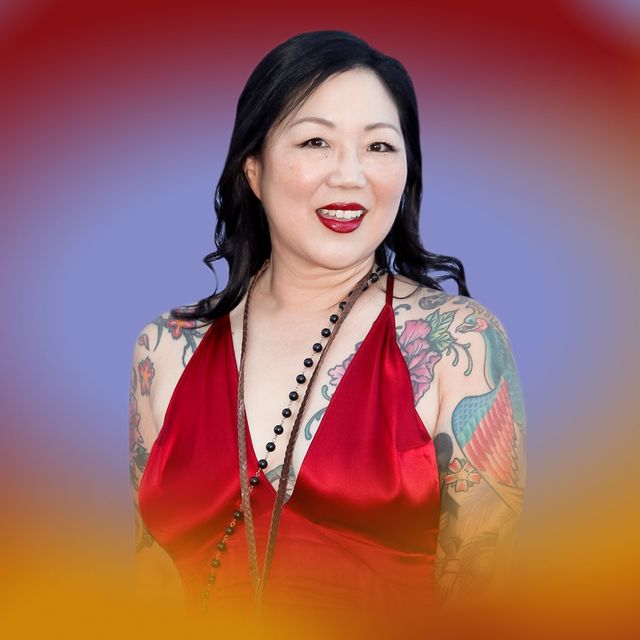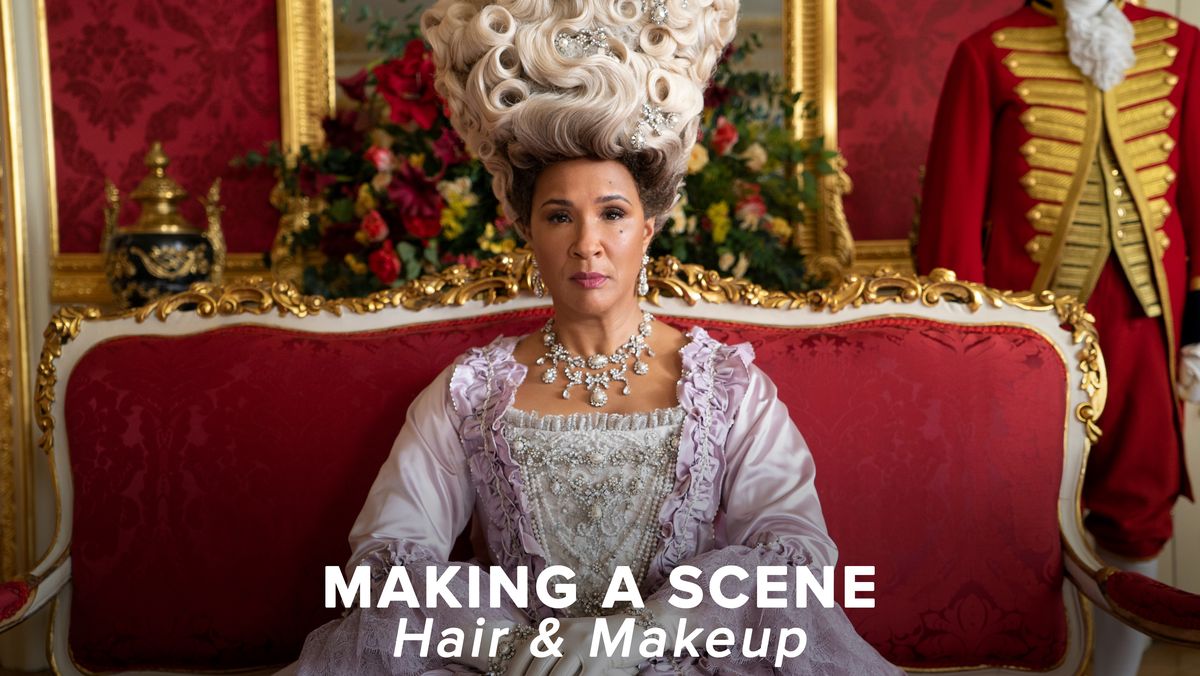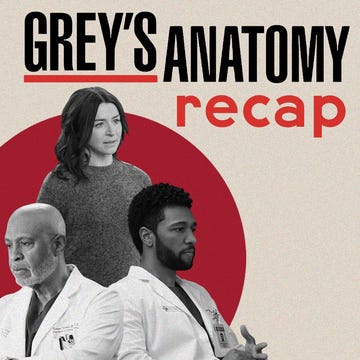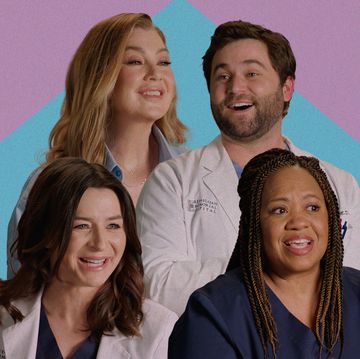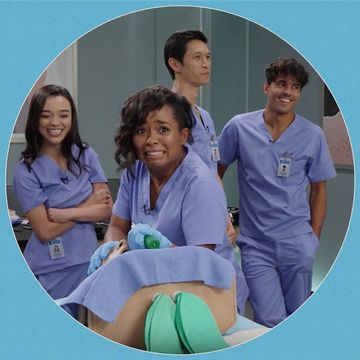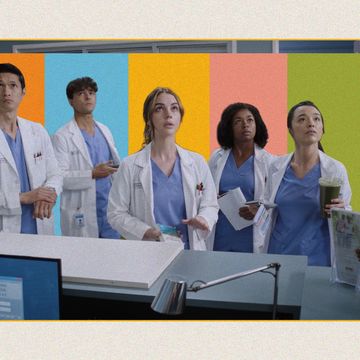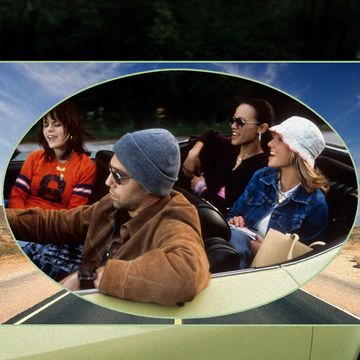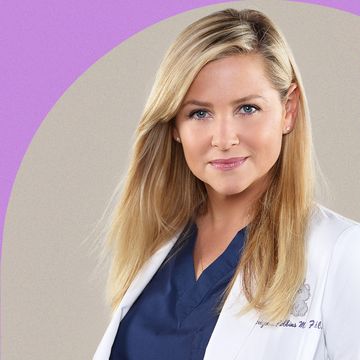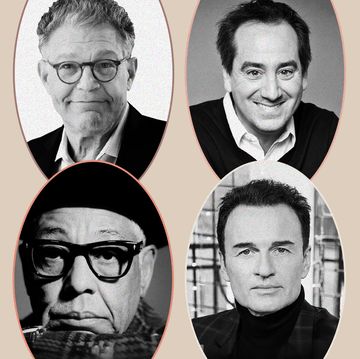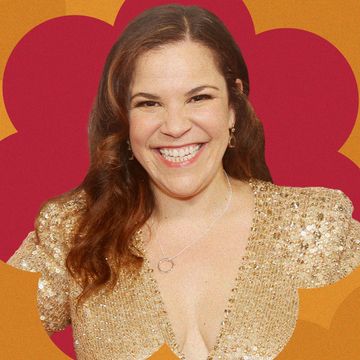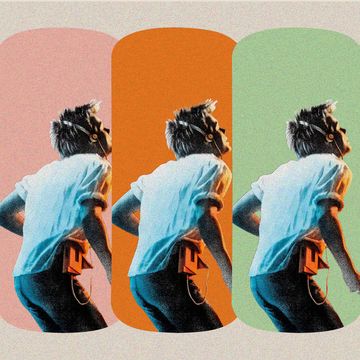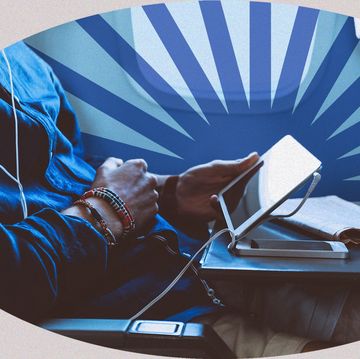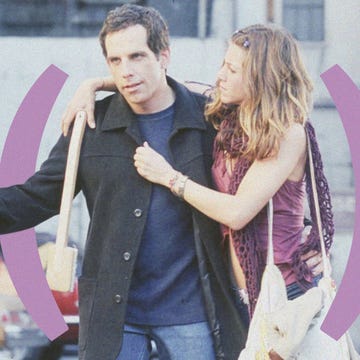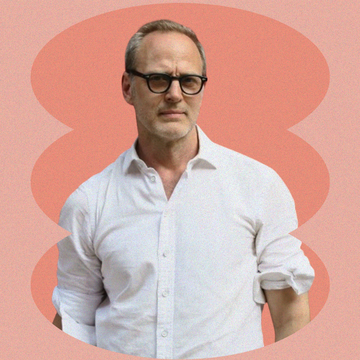Over the past 30 years, Margaret Cho has remained a trailblazing voice in comedy. She was the star of All-American Girl, a 1994 sitcom that was the first Asian-American sitcom for a mainstream audience (today it’s remembered as the Korean-American version of Happy Days). In 1999, she debuted her off-Broadway one-woman show I’m the One That I Want, which gained national acclaim and went on to become a best-selling book and feature film. Cho has, of course, also long been known for her wild-child, slightly unhinged stand-up shows, during which she’s unflinchingly tackled her own issues, whether it’s eating disorders, her sobriety, or dealing with Asian stereotypes and discrimination. All the while, she’s remained progressive and always ready to help raise the voices of those around her.
These days, Cho hosts a podcast, The Margaret Cho: Mortal Minority; is planning a comedy tour, Fresh Off the Bloat; and stars in a new film, Sex Appeal, debuting on Hulu on January 14.
In the film, she plays a lesbian mother offering guidance and support to her teenage daughter, who is at the brink of her own sexual awakening. She’ll also be seen alongside Kaley Cuoco, Rosie Perez, and Sharon Stone in the upcoming second season of The Flight Attendant, which is slated to debut on HBO Max this spring.
As the comedian who once said, “Feminism to me is like the oxygen that we breathe,” Cho continues to make good on that mantra with her projects and persona. Ahead of the debut of her new film, she speaks to Shondaland about Joan Rivers, her thoughts on the Dave Chappelle controversy, and her advice to young women comedians.
NADJA SAYEJ: Many films just stick to the heteronormative idea of parenting — straight parents, straight kids. What was it like working with Fortune Feimster on Sex Appeal to counter that?
MARGARET CHO: I love Fortune. We’ve done comedy together, so she’s a longtime friend. Rebecca Henderson, who plays my new wife in the movie, she and I got married on another TV show, so she’s basically my on-camera spouse. I love that and the nontraditional idea of motherhood, but at the same time, me coming from San Francisco, coming from the queer community, and seeing this kind of parenting from sex-positive mothers who are queer, who live like they work as artists, it’s very familiar as well.
NS: What was the best part of shooting?
MC: Just getting to leave this quarantine we’ve all been in! And go to a set where we were all in a bubble shooting. It was the first thing I got to do during the pandemic. It made it so special, where we could just get together and really have a little island of working and creating.
NS: Where do things stand with your comedy tour? Hopefully, it’s still on?
MC: It is, but I’ve had to move around some dates. I was supposed to go to Washington, D.C., but I ended up postponing many dates because I don’t want anyone getting sick. It’s such a weird time. We don’t know what to do, or what’s happening. I’m vaccinated and boosted. But these things may or may not matter. So, I don’t know. I was doing quite a lot of shows until last year. I went on a bunch of tour dates in the summer, and I was in Reykjavík shooting the second season of The Flight Attendant. I just came back. I was expecting to go on tour this week, but I wanted to protect everybody’s health, so I postponed it.
NS: What was it like working on the second season of The Flight Attendant?
MC: I really thought it was so intense to be in Iceland; it was so intense to go. It’s so surreal, especially in winter. I think Scandinavian winter is so different because it’s so dark. There’s an ethereal beauty that comes with the eternal night. I loved working with Kaley Cuoco and Rosie Perez. I think the show is really exciting. Even being part of it, there’s a feeling of excitement. Even if you have the script and you know what’s going to happen, you also don’t know. There’s so much, even acting in it, we become privy to. So, all in all, I’m excited about it.
NS: You’ve been a woman in comedy for years now. In stand-up, is there more freedom, or are there still taboos women in comedy can’t talk about?
MC: I think there’s a lot more freedom. There’s a lot more diversity, which is incredibly important. There are more queer voices, which have always existed with women in comedy, but now they’re much truer and more authentic than before. We have a more nuanced view of what feminism is, I think. Comedy is shifting away from the boys’ club that it has traditionally been known for. It still exists, but we’re making some great strides.
NS: Can you comment on the Dave Chappelle controversy?
MC: I don’t agree. To me, it hurts me because he doesn’t seem to really understand how much language can affect people. People say it’s just a joke, but is it just a joke that we’re dying for the joke? It would be different if trans women’s lives weren’t threatened every moment of every day. Maybe then we could have more of a sense of humor around what happens with trans lives. But as a comedian, I understand his idea of comedy is really “I want to joke about whatever I want to joke about.” That’s his brand, really. “You can’t tell me what to say,” especially about anything that’s not supposed to be approached, because that’s his identity. I don’t think he really understands the trans community. He says he does. I don’t know if he does. I’ve known him for a long time. His idea of his own integrity is much more important to him than anything else. That’s just him and his personality. For me, it’s sad. Trans lives are in danger. Anybody like J.K. Rowling has the same problem. It’s a problem for all of us queer kids who grew up loving Harry Potter — we now struggle to partake in all of that work.
NS: I was recently watching your segment with Joan Rivers, “In Bed With Joan.” I know she was a huge influence on you. Can you speak to why?
MC: I mean, she was also “I’m going to joke about whatever I want to joke about.” Her integrity was more important to her than anything else. She was going to joke about it especially when people told her not to. That served her especially because of the generation she grew up in. When she was doing TV in the 1960s, she wasn’t allowed to talk about being pregnant on camera. To me, Joan was very special and supportive. Almost not like how she appeared as a comedian. She was incredibly gentle and generous. She was a really soft-spoken person. The strangeness of getting to know her inside her work and outside of it was a rare pleasure. It was insight into a real genius.
NS: What advice do you have for young women comedians today?
MC: Just do it! We need you. We need women’s voices and gender-fluid voices, different voices than the ones we’ve heard and keep hearing. We need trans voices. We need to hear from you. It doesn’t matter what you’re saying, as long as you’re saying it. We just need your voices.
Nadja Sayej is an arts and culture journalist based in New York City who has written 5 books, including Biennale Bitch and The Celebrity Interview Book. Follow her on Twitter @nadjasayej.
Get Shondaland directly in your inbox: SUBSCRIBE TODAY
